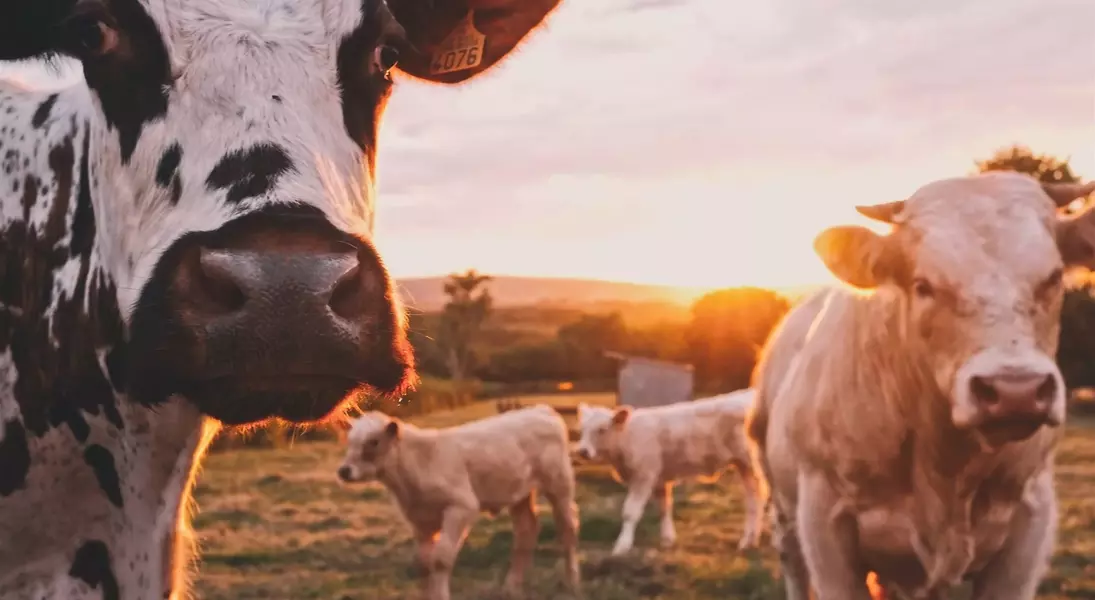The convergence of innovative breeding techniques and substantial financial backing is reshaping the global approach to livestock methane emissions. By harnessing natural genetic traits, this initiative offers a sustainable solution to one of the most pressing environmental challenges of our time. Through collaborative efforts between the Bezos Earth Fund and the Global Methane Hub, the world is witnessing a transformative shift in agricultural practices that promises long-term climate benefits.
Unlocking a Sustainable Future for Agriculture
The urgency of addressing methane emissions has never been greater, as these potent greenhouse gases significantly contribute to global warming. This groundbreaking initiative not only addresses the issue head-on but also provides farmers with practical tools to enhance their herds' efficiency without disrupting traditional methods.Pioneering Partnerships to Drive Change
A landmark collaboration between the Bezos Earth Fund and the Global Methane Hub aims to revolutionize livestock breeding by reducing methane emissions through science-backed methods. With an impressive investment totaling $27.4 million, this partnership will fund extensive research and breeding programs across diverse regions, including North America, Latin America, Europe, Africa, and Oceania. The primary objective is to identify and promote naturally low-emission cattle, leveraging age-old selection practices adapted for modern challenges.Methane's potency as a greenhouse gas far exceeds that of carbon dioxide, making it a critical target in climate change mitigation strategies. Cattle are among the largest contributors to livestock-related methane emissions, underscoring the importance of selective breeding to achieve permanent reductions. Farmers can now capitalize on existing herd traits to lower emissions effectively, maintaining traditional farming practices while contributing to global climate progress.Empowering Researchers with Cutting-Edge Tools
The combined funding from both organizations will empower researchers worldwide by providing them with state-of-the-art tools to identify and analyze biological traits associated with low methane production in livestock. This initiative will facilitate the development of comprehensive breeding programs tailored to specific regions and species, ensuring maximum impact.One notable grant recipient is the University of Nebraska, which received $2.34 million to spearhead research on low-methane beef genetics within commercial and crossbred cattle populations in the United States. This project exemplifies the meticulous attention to detail required to uncover genetic markers responsible for reduced methane output. Furthermore, the Angus Foundation obtained $4.85 million to integrate these crucial traits into beef cattle breeding programs spanning North America, Oceania, and Europe, demonstrating the global reach of this endeavor.In Europe, Wageningen University leads an ambitious project funded by $8.7 million aimed at accelerating low-emission dairy breeding across several breeds, including Holstein, Jersey, Brown Swiss, and Red. Meanwhile, the International Livestock Research Institute in Kenya secured $3.35 million to advance methane-efficient breeding in Indigenous African cattle, highlighting the initiative's commitment to inclusivity and diversity.Expanding Horizons Across Continents
Beyond the contributions from the Bezos Earth Fund, the Enteric Fermentation R&D Accelerator of the Global Methane Hub plays a pivotal role in expanding this initiative's scope. A $1.7 million grant supports methane-efficient beef breeding in Latin America under the leadership of Uruguay's National Agricultural Research Institute. Similarly, the University of New England in Australia received $2.4 million to accelerate low-emission sheep breeding in Europe, Oceania, and Latin America, illustrating the program's adaptability across different species and environments.An additional $4 million allocation ensures rumen microbiome sampling and analysis across all projects funded by both organizations. This holistic approach guarantees consistency and reliability in data collection, enabling researchers to draw meaningful conclusions about the effectiveness of various breeding strategies.Scaling Up for Global Impact
This ambitious initiative will screen over 100,000 animals, collecting invaluable methane emissions data to scale up low-emission breeding practices across public and private breeding programs. Roel Veerkamp, leader of the initiative at Wageningen University & Research (WUR), emphasizes the significance of bringing together the best minds in science, industry, and the global breeding community to accelerate genetic improvement for methane efficiency worldwide. Such collaboration aligns perfectly with WUR's mission to explore nature's potential to enhance quality of life.Supported by over 50 institutions in more than 25 countries, the initiative envisions making methane efficiency a global breeding standard. Over time, this strategic approach could result in a 1-2% annual reduction in methane emissions from cattle, accumulating to a remarkable 30% decrease over the next two decades. This outcome represents a monumental step forward in combating climate change while supporting farmers' livelihoods and preserving traditional agricultural practices.
